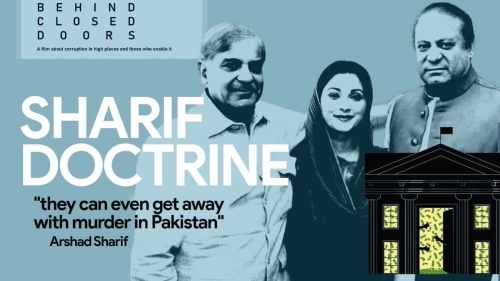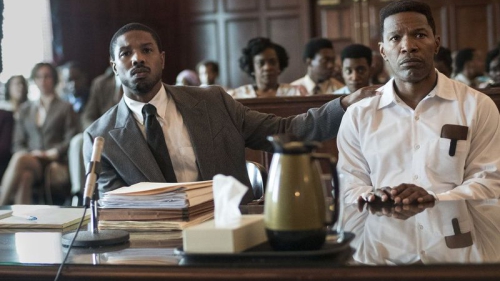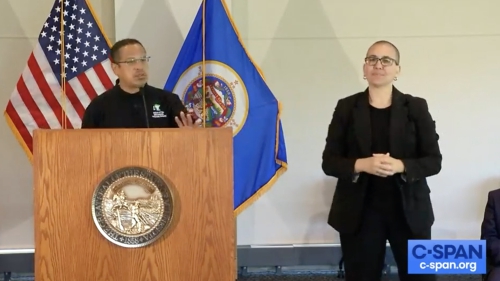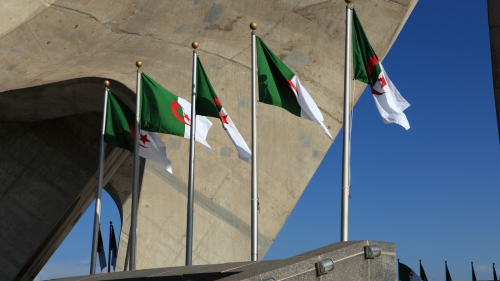Assassinating Algeria's Voice of Reason
Perhaps the killing of Algerian Islamic Leader Abdelkadar Hachani, Monday, November 22 wounded Algeria's attempt at reconciliation. The slaying of the number three leader of the Islamic Salvation Front (FIS) however, has not entirely destroyed chances for peace in the warring nation.
It is vital before exploring the assassination any further to note that violence of that kind may have resulted from fear, fear that the voice of reason in Algerian society was finally prevailing over the voice of death and destruction.
Hachani on many occasions resembled the moderate but determined Islamic opposition. The 43-year old man was credited for convincing the FIS leadership to resort to democratic elections in its quest for political emergence. In fact, in December of 1991, FIS achieved an astounding victory in the first round of parliamentary elections -- a victory that the government then dismissed, sparking a savage civil war that claimed the lives of over 100,000 Algerians.
The Islamic leader was freed in 1997 after spending seven years in jail, as the government accused him of being a vital character in promoting violence. Since his release, Hachani was a ceaseless advocate for peace and reconciliation. Yet Hachani's approach was indeed unique, as he demanded a political accord negotiated by all parties concerned.
Playing the guessing game of whom is most likely responsible for Hachani's death could indeed be tiresome. It is possible that inner-party rivalry has cost the devoted leader his life. Or perhaps it was armed militant groups who are at odds with FIS. A third possibility emerges from Hachani's opposition of President Abdelaziz Bouteflika's peace plan for not being bold enough. Yet aside from the beneficiaries from Abdelkader Hachani's death, the painful Algerian reality once again becomes visible. The violent approach is still winning against the voice of reason that Hachani largely manifested.
Only a few months before his death, Hachani created a task force for peace. The task force included Ali Yahia Abdenour, president of the Algerian League for the Defense of Human Rights. Although the killing was unlikely linked to the task force, it was an indication that Hachani's vow to halt Algerian violence was genuine and translated to a practical venture.
It is also vital not to overlook the massacres that occurred in the week preceding Monday's assassination. Several acts of violence were reported in various parts of the country. The violence, which claimed the lives of over 30-40 Algerians, many of whom were women and children, was described as the worst since Bouteflika began his term in office.
One cannot help but wonder if those determined to keep the nation hostage to violence feared that Hachani's peaceful and moderate approach was a barrier in the way of their efforts. Although we might not know for some time who killed Hachani, we cannot underestimate the impact of his death. Hachani contributed significantly to the Algerian government's efforts in bringing reconciliation and normalcy to the devastated nation. His death therefore shall jeopardize the progress of these efforts.
Bouteflika must show sincerity regarding his peace pledge by opening a wider door for FIS leaders to join him in rebuilding trust, not only by issuing amnesty, but by re-incorporating FIS into the democratic process. This way, regardless of who Hachani's killer is, Bouteflika will close the door on those interested in igniting more animosity.
Abdelkader Hachani was killed because his killers feared the impact of his political style and approach. That approach must have proven effective or it would not have generated such a violent reaction from a group with vested interests in his death.
Saying that Hachani's death was the death of Algeria's peace plan is an exaggeration. Although we cannot deny the political impact of Hachani's disappearance from the peace efforts, we should hope that his death inspires Algerian groups to seek a peaceful end to the country's ongoing nightmare.

















